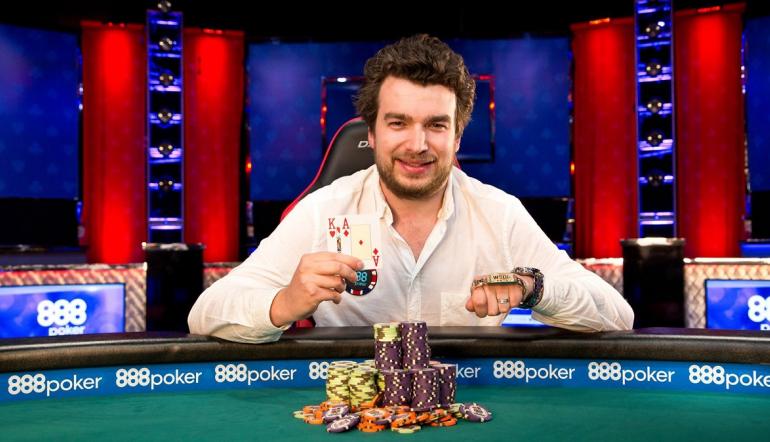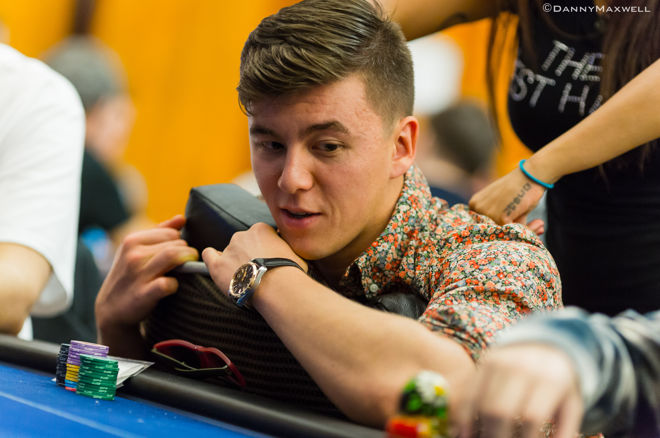The first thing that you want to do before playing in a video poker tournament is figure out the rules and other details.
This is important because you must decide what kind of strategy is needed to reach the prize money. You must also figure out what tourneys best suit you.
Here are the standard types of video poker tournaments:

Nov 08, 2020 One of the biggest differences between cash and tournament poker games is the diversity of stack sizes, and it is essential to account for this when determining the best strategy for a tournament. Daniel says: “The number one mistake I see tournament players makeis you see a player who has a chip lead or a very big stack and then just. Maria Ho has won millions of dollars playing poker tournaments and she's got five must-learn strategy tips to help you crush poker tourneys. For more poker n.
- Buy-In Without a Fee – These events see 100% of players’ buy-ins go directly into the prize pool.
- Buy-in with a Fee – The casino that’s hosting the tournament takes a small fee from each buy-in. In most cases, the fee includes an extra 5%-10% on top of the buy-in (e.g.,$100 + $10).
- Open Freeroll – A freeroll is aptly named, since you don’t have to pay anything to enter. The “open” aspect refers to how anybody at the casino can enter because there aren’t any requirements.
- VIP Freeroll – These tournaments also don’t require players to pay an entry fee. The catch is that you have to be a certain VIP status to be invited.
You should use your specific situation to decide what type of events you’re willing to play.
This is a discussion on Large tournament strategy within the online poker forums, in the Tournament Poker section; I usually just play one table sit n go's but am thinking about playing larger. Short Stack Poker Tournament Strategy: 15 Big Blinds and Below. Strategies for Playing Poker on the Bubble. Poker Strategy: Big Blind Math and 16-30 Big Blinds. Strategies for poker tournaments Entering large poker tournaments will require a much different approach than that employed in traditional table games or small tournament play. A good deal of early tournament play is about surviving those early stages and building your bankroll into the later stages so you can be in a position to effectively.
A well-funded video poker player who wants to compete for big prize money will find open freerolls to be a waste of time.
This is because open freerolls can draw hundreds or thousands of players. And the prize pools are generally small, meaning a tiny percentage of the field will cash.
On the other hand, any gambler with a small bankroll should consider open freerolls because these offer a chance to win real money.
Another consideration comes in with VIP freerolls. Specifically, you want to decide whether the freeroll prize pools make it worth attaining a specific loyalty status.

You should also look at the other rewards being offered in the program to see if it’s worth meeting the VIP status requirements.
When it comes to buy-in tournaments, you obviously want to play in events where you don’t have to pay extra fees. But keep in mind that tourneys with house fees can be the most lucrative in termsof prize pools.
As for the rules, you need to know if a tourney has a time limit, credit limit, hand limit, or a combination of these. Here are different formats featured in video poker tournaments:
- Timed – These tournaments last for a specific number of minutes (e.g., 20 minutes). The winner is the player with the highest score when the time is up.
- Credit Limit – Entrants continue playing until their credits run out. The winner is determined by who has the most credits when everybody is finished playing their round.
- Credit and Time Limit – Ends when the time limit is reached. But players can also run out of credits before the time limit.
- Hand Limit – The tournament runs for a specific number of hands (e.g., 300 hands). The winner is the player who has the highest bankroll when the hands are finished.
Timed tournaments are the most common in video poker. These see you play as quickly as possible in hopes of winning the most credits.
For example, you may be given 30 minutes to rack up as many credits as possible. When the half hour is up, players’ scores are tallied, and a winner is determined.
You want to play as quickly as possible in any timed video poker tourney. This ensures that you give yourself the best possible chance to win lots of credits.
Hand limit events are also fairly common. An example would be a tournament that lasts for 500 hands.
You should take your time with these tourneys because there’s no pressure and you want to make the best decisions.
When you are playing in large tournaments you’ll be sitting
at a table or tables for a very long period of time until you
can get into the money and cash in the tournament. Hours on end
will go by and it can be very difficult to maintain focus
throughout. When playing a big tournament you have to keep two
things in mind; know what the blind levels are and what the average stack size is.
These are the two most important things when playing through large
tournament fields. These will be the most apparent and relevant
during the middle of tournaments where you could lose focus. The
reason to keep in mind what the blind levels are is because when
playing through big fields you can sometimes lose track of the
blinds and how often they will increase. Also, you should set
short term goals for yourself in order to progress through a big
tournament field.
Keeping Pace
Youtube Poker Tournaments
Keeping track of the blind structure of a tournament will let
you know how much longer you will be playing for at the level,
and it will also let you know when to play passive and when to
play aggressive. Also, keeping in your mind what the average
stack size is will help you to determine when to speed up or
slow down. Ideally, you would like to play a tournament and have
a stack that’s above the average throughout the duration of it.
This will almost never be the case with the
natural swings of the game, but in order to have the best
chance of doing that, you should always keep in the back of your
mind how you are doing compared to others.
Also, you should take mental notes of the stack sizes at your table. It will be
important down the road to be above the average, but it will
all depend on how you are stacked up compared to your table
mates. It will happen sometimes where you’ll be above the
average and have six other players who have more chips than you
at your table. If this is the case you are a short stack and you
aren’t able to maneuver chips as easily without being met by a
confrontation.
Small Tournament Fields
Smaller fields will force you to sit at the tables for much
less time than with a large field. In order to capitalize on a
small field of players you should wait for a hand to go on a run
with. Basically, you’ll wait for big hands to double up with
early on in tournaments with smaller fields. If you can show
down one big hand and acquire a stack early when playing with a
small field you’ll have more success in them and can run them
over.

A reason why you can run them over is because once a
player sees that you have been playing passively and waiting it
out they will be more prone to making a fold then a call against
you. If you sit back and wait too long, then you’ll be
the one barely holding on at the end and hoping you get lucky to
double up. You should never have to rely on luck when playing
tournaments even though a little always helps. You should also
spot the good and the bad players right away. If there’s a
small group of players in the tournament, you should be locked in
on your table from hand one looking for betting patterns and
tells. If you can pick a couple betting patterns up on people or
tells you will have success more times than not when playing
smaller field tournaments.
Also, when playing in tournaments
with small fields there will be fewer players paid out. To make
the money you’ll have the same chance as a big tournament
except you’ll get there faster. This is another reason why you will
need chips early on. If you coast along through small fields you
often go bust sometime in the middle of them.
When looking at both of them, there are major differences in
playing styles and what you should look to do. In big
tournaments you want to have short term goals that allow you to
slowly coast through them, and gather chips little by little. In
small tournaments your short term goals almost don’t exist. The
only one you should have is to make the final table, and then to
win the tournament. The reason is when playing with a small
field of players, players don’t drop at a rapid rate. They will
drop off one or two at a time and most will try to hang on to
their stack as long as possible.
When you see a table that’s
playing passive you should be playing aggressive and look to
build your stack up. In most cases when playing small
tournaments the time will come where you have to try and be the
table captain, controlling the table and how players will play.
When that time comes you have to pounce on it right away and try
to accumulate as many chips as you can. If you can do that at
the right time, you’ll most likely make the final table because
you’ll have enough chips to be comfortable, and allow yourself
to make hard decisions easier when the money bubble comes
around.
Large Tournament Fields
When playing through a large field, you’ll want to do the
opposite most of the time. At large tournament fields you’ll have
to slowly grind out chips. If you can slowly make progress and
not go on tilt from one hand you lost, you’ll be better for it
and survive. Survival skills in tournament poker, and especially
when dealing with large fields is something you have to have. In
general, the larger the field of players the larger the prize
pool will be.

Strategy For Large Poker Tournaments Slot Machines
Surviving is overlooked sometimes when you get short stacked,
but when you play big tournaments you need it at some point.
You simply won’t have the massive stack throughout a big
tournament the entire time. If you still have chips in front of
you, there’s still a chance of you coming back and gathering
that big stack if you are down to only a few big blinds. There
are a number of famous stories where players had one chip
left or almost nothing left after losing a big hand, and came
back to win the tournament. If you can continue to survive
and slowly make progress without making big mistakes you’ll get
there at the end.

